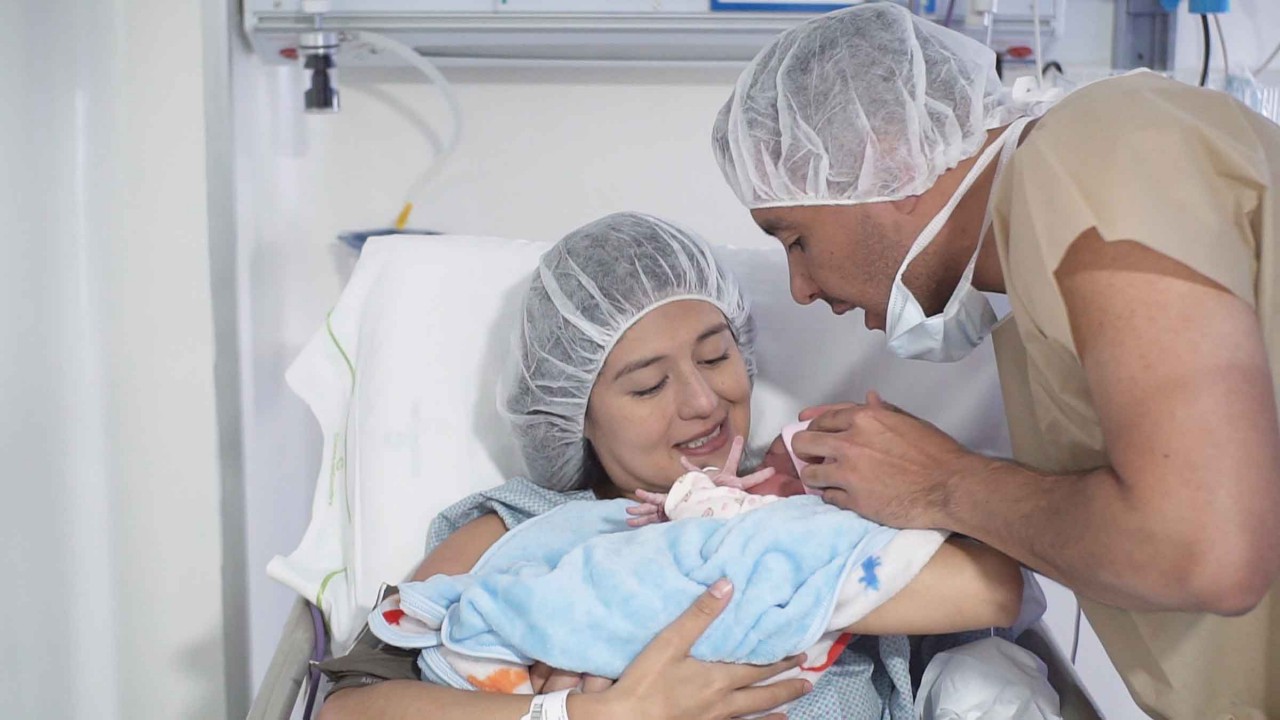In Colombia, a program to help treat spina bifida in utero
Nearly all expectant parents want the same thing — the safe delivery of a happy, healthy baby. Even when every effort is made for this outcome, unexpected issues may arise. When a birth defect is detected before delivery, like spina bifida, it can be a scary experience, leaving expectant parents feeling helpless until birth.

Spina bifida is one of the most commonly diagnosed birth defects throughout the world. Ranging from mild to severe forms, spina bifida affects the spine and may lead to physical and intellectual disabilities. Although many children and adults lead active, fulfilling lives with spina bifida, and no two people with spina bifida are alike, it may lead to lifelong health concerns.
Spina bifida can be screened prenatally, along with many other birth defects. Until recently, there were few treatment alternatives prior to birth. Those that existed required incisions that could threaten the health of the mother.
However, for babies diagnosed with spina bifida in Colombia, a new program may be able to address some of those issues from inside the womb. Through a minimally invasive procedure called fetoscopy, repairs to the spinal cord nerves are made that can help lead to better outcomes for the child after birth. The program to treat this condition in utero is the first of its kind for Clinica del Country, a UnitedHealthcare Global provider.
“Spina bifida is a condition that is difficult to manage, without many therapeutic alternatives, and this is a novel technique that can bring about important benefits for babies,” said Dr. Marco Duque, head of the Maternal-Fetal Care Center of the Clínica del Country and Clínica La Colina.
The repair through fetoscopy helps treat the defect and stops damage to spinal cord nerves. Surgery before the baby is born can help to provide better outcomes than surgery after birth because it can reduce the damage done in the womb. This means, for example, that a child with spina bifida who had prenatal surgery versus postnatal surgery may be more likely to walk without assistance.
In order to bring the technique to Colombia, doctors from the Clínica del Country spent two years working jointly with specialists from Vall d’Hebron Hospital in Barcelona. The first surgery in Colombia was performed when the mother was 26 weeks pregnant — and the baby had a safe delivery. The child, now 9 months old, has normal limb movement and intact sphincter muscles, which leads doctors to believe her prognosis may be more favorable than if she had not undergone surgery.
“We are very enthusiastic and positive about being able to benefit more children with this condition, and being able to develop this new technique at our clinic,” said Dr. Camilo Hernández De Alba, obstetrician-gynecologist, specialist in high-risk pregnancies and coordinator of the new Spina Bifida Unit of the Clínica del Country and Clínica La Colina.
The procedure is still rare throughout the world — the only medical centers with minimally invasive spina bifida programs are located in Brazil, Spain, Germany and the United States. In Colombia, the hope is to replicate the procedure throughout the country to potentially help up to 500 babies a year.